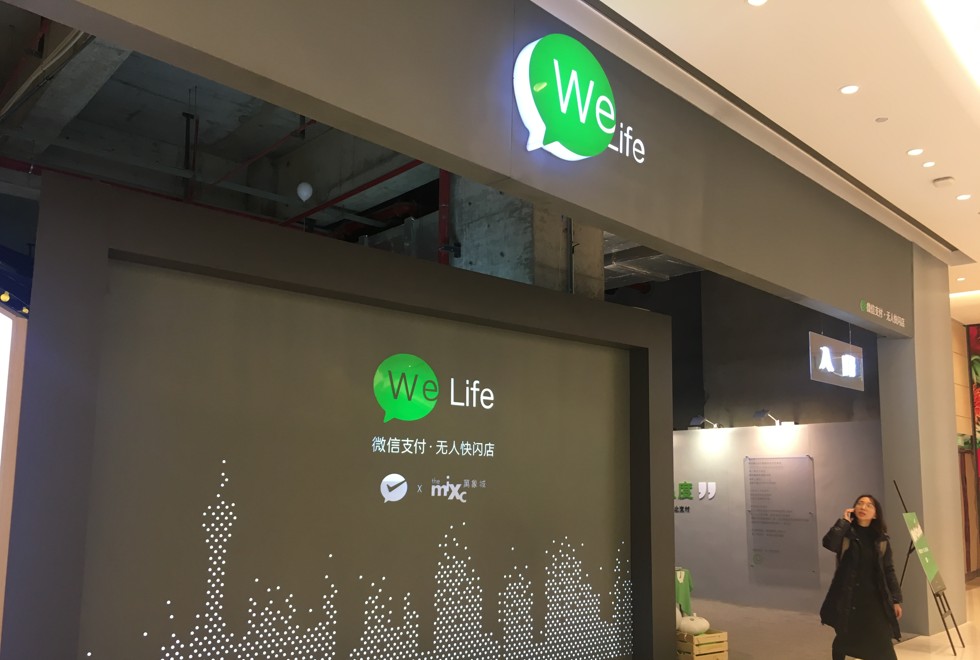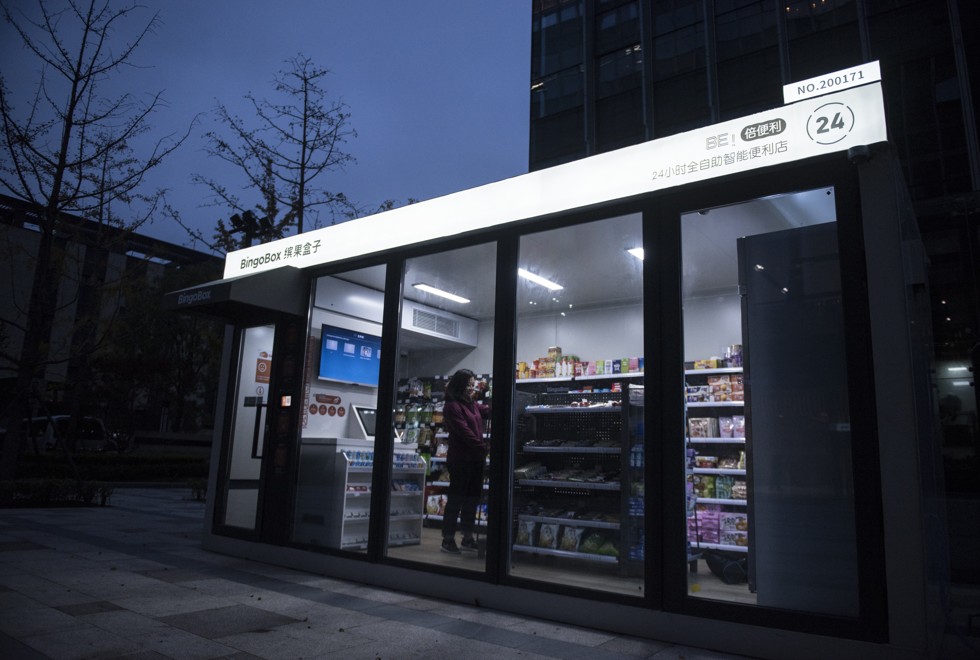
Operator of Okashi Land stores to open unmanned outlet in China with start-up partner EasyGo
Hong Kong-listed Four Seas Group is in the process of finalising a location for a flagship store in the southern Chinese city of Guangzhou, says partner

Hong Kong-listed Four Seas Group, the operator of the popular Okashi Land confectionery stores in the city, is hitching on the emerging unmanned stores bandwagon in China to expand its reach, according to its partner.
EasyGo, a Guangzhou-based start-up that operates unmanned convenience stores on the mainland, is in the process of finalising a location for a flagship Okashi Land store in “one of the most popular commercial areas” in the southern Chinese city later this year to run the Four Seas store, with a dedicated unmanned section, said Fele Wang, co-founder of EasyGo.
“As a start-up based in southern China, we want to leverage our advantages of being close to Hong Kong, Macau and Taiwan and seek cooperation with brands from these regions,” she said, stressing that the company might expand the branded store model once it takes off.
EasyGo also sells Four Seas products through its unmanned convenience stores in the Pearl River Delta in the southern mainland. It operates about 100 outlets in 10 cities in China, but Four Seas products are mainly available at its stores in southern China, where it has a footprint in seven cities.
To enter the company’s unmanned stores, consumers have to scan a quick response (QR) code using Tencent Holdings’ popular messaging app WeChat on their mobile phones, which bundles with EasyGo through a mini program on WeChat.
Consumers then pick out the items they want, and scan a QR code again at the exit point where the system automatically detects the items and tallies up the purchases.
Four Seas was not available immediately for comment.
In addition to the expansion in southern China, EasyGo is trying to make inroads into eastern China such as Shanghai and Hangzhou.
Its confidence in Shanghai has been strengthened after shoppers gave a warm reception to Tencent’s cashier-less pop-up shop called We Life. The shop, which will remain open until February 4, uses the internet giant’s WeChat Pay e-wallet system to accept payments. EasyGo is supporting Tencent in running the store’s daily operations.
The unmanned retail sector is gaining momentum in China, with both start-ups, major retailers and internet giants rushing into the emerging market.
Last July, Alibaba Group Holding, owner of the South China Morning Post, unveiled its Tao Café unmanned shop in Hangzhou, and start-up BingoBox runs unstaffed convenience stores. E-commerce major JD.com and Suning, one of China’s largest retailers, have also forayed into the segment.
Amy Wang, a shopper at Simple.24 Mart, an unmanned convenience store in Shanghai run by Shanghai Guoxue Information Technology, said she still needs human help to familiarise herself with the procedures at the entrance of the shop.
Jason Yu, general manager of market research firm Kantar Worldpanel in Greater China, said by teaming up with unmanned store operators, consumer goods companies can extend their reach to consumers and capture the first-mover advantage for future growth once the unmanned retail business is in full bloom.
But, challenges remain.
“Large-scale operations still have a long way to go,” said Yu. “Unmanned stores will only become profitable if they can provide superior customer experiences empowered by mature technology and truly save running costs.”
